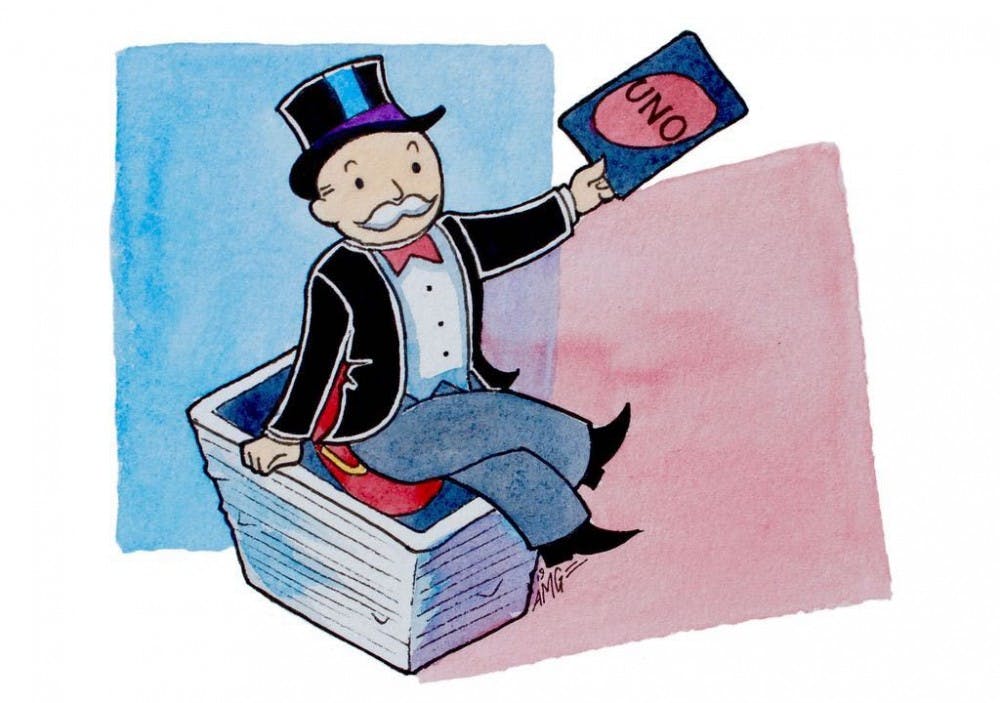There are fewer moments more satisfying than emerging victorious after a long game of Monopoly. Gathered around the board with your colorful property cards spread in front of you like prizes, it's no surprise that a game about being financially successful has been so financially successful in popular culture. Other popular games such as Scrabble, the Game of Life, and Catan often draw us back into fond memories of being crowded around cardboard for hours. Maybe finally cleaning your childhood bedroom at home will inspire you to host game nights with as many friends as your apartment living room can hold. But, in a crowded world, do we still value board games for their inherent entertainment—or is their only value hidden in our nostalgia towards them?
It's no secret that today’s world offers many other avenues for entertainment than the era of board games once did. With teenagers flocking to video games such as Fortnite for hours after school or laying in bed with their laptop and infinite Youtube spirals to travel down, there seems to be little room for more. Even multiplayer games such as Uno have been integrated into iMessage versions, enabling long–distance competition with friends and strangers alike. Board games seem to be pushed out of relevancy, in turn being replaced with the virtual trends of Trivia Crack and Netflix binges.
However, according to an article by the Seattle Times, board games aren’t dying because they’re antiquated—they’re booming because of it. Less traditional adult games such as Cards Against Humanity and What Do You Meme? have risen in popularity as millennials recall the excitement accompanied by competitive interaction amongst friends over something other than a screen. Sites like Kickstarter enable game creators to trial their products and gauge an audience, utilizing the Internet as an assistant rather than a threat.
This return to cardboard and card games is consistent with other patterns at the forefront of popular culture, such as the undeniably trendy instant film cameras and record players. Where instantaneous entertainment is available constantly, the real fun factor seems to be rising to the challenge itself, whether it be taking hours to finish a Monopoly game or capturing the perfect image in one try.
But that is not to imply the sole value of board games today lies in its trendiness. They remain what they were designed to be: unadulterated, untainted fun. They offer a chance to tap into a world where the only thing that matters is securing your next property, trying to trash–talk over your best friend’s laughter, and prolonging bathroom breaks for as long as possible. They offer the chance to spend an entire summer in a coffee shop with a chess board, an iced latte, and your favorite person in the world. Above all else, they offer an escape, which is something we all need from time to time—regardless of how old we are.

